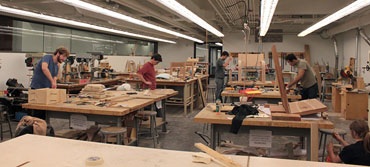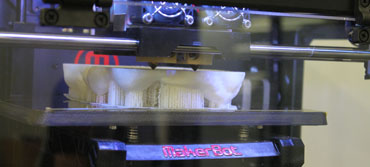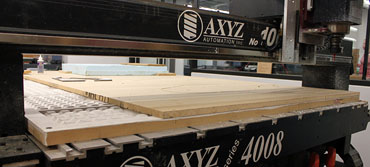Graduate Residency (ARDS 69206)
The Graduate Residency is a culminating professional experience in which students work with design firms, businesses, organizations, nonprofits, or municipalities in a project-based setting. Each residency is tailored to the student’s career goals, providing a period of sustained, hands-on engagement in meaningful professional activities.
Through guided mentorship, the residency fosters:
- Career development and professional networking
- Application of advanced design knowledge to real-world problems
- Integration of academic learning with practice-based inquiry
Residency placements are developed in collaboration with graduate faculty and the Graduate Coordinator, aligning with each student’s concentration and interests.
Students typically serve as members of design or research teams with clearly defined
goals and outcomes.
Examples of residency partners include:
- University of Arkansas Community Design Center
- U of A Resiliency Center
- Regional and national firms such as Walmart Inc., Hyatt Hotels Corporation, Hilton Hotels & Resorts, Dillard’s Inc., and Urban Land Institute Northwest Arkansas
- Nonprofit and civic partners such as Mayors’ Institute on City Design
Residencies may also take place internationally through established partnerships and
alumni networks, supported by the Fay Jones School’s 70-year legacy of professional
engagement.
Complementary programming—such as the school’s Meritorious Lecture Series, featuring leaders like Juhani Pallasmaa and Mónica Ponce de León—provides further professional enrichment.
Evaluation:
Assessment in the Graduate Residency is based on the student’s ongoing documentation,
professional performance, and critical reflection throughout the placement.
Students are required to submit weekly reflective reports, a final portfolio documenting their professional contributions, and a final reflective report analyzing how the residency advanced their design concentration and career development.
The weekly reports, portfolio, final reflection, and supervisor evaluations collectively determine the final grade.
Capstone Project (ARDS 69906)
(Hybrid Delivery — Proposed for AY 26-27)
The Capstone Project is an alternative culminating experience that allows students to synthesize research, design, and innovation through a self-directed investigation under faculty supervision.
It is designed for students pursuing academic, research-oriented, or specialized professional
goals that extend beyond traditional office-based residency experiences.
Students in the Capstone option will:
- Develop a project proposal with a clearly defined research question, design intent, and methods of inquiry.
- Engage in iterative design development, applying advanced tools such as computational modeling, data analytics, simulation, or evidence-based design frameworks.
- Produce a final presentation and written report that demonstrates design synthesis, methodological rigor, and communication excellence.
The Capstone is supervised by a faculty advisor and approved by the Graduate Coordinator. Students may elect to present their project publicly or at a professional venue such as a conference or exhibition.
Examples of Capstone focus areas include:
- Evidence-Based Design for Health and Wellness
- Parametric and Computational Design Methods
- Adaptive and Responsive Environments (AI/XR Integration)
- Material Research and Fabrication Studies
- Post-Occupancy Evaluation and Data Visualization
- Heritage and Preservation Technology Applications
The Capstone Project follows the completion of all required studios and coursework, typically in the summer semester.
Deliverables:
- Project proposal (approved by advisor and coordinator)
- Midterm review and progress documentation
- Final report and presentation (written + visual deliverables)
- Faculty and external review assessment
Completion and Credit
Both the Graduate Residency (ARDS 69206) and the Capstone Project (ARDS 69906) are 6-credit-hour culminating experiences that complete the Master of Design Studies degree requirements.
Students select one of the two options in consultation with the Graduate Coordinator
before the conclusion of the spring semester.









